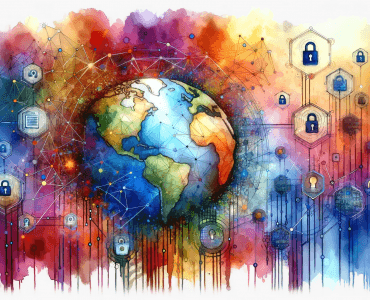AI is a growing technology that can revolutionize our lives. However, it raises social and gender issues. Let’s examine its advantages and disadvantages of AI from these perspectives.
AI can improve quality of life, solve complex problems, help those with disabilities, increase productivity, and create jobs. However, it could cause job loss, exacerbate inequality, violate privacy, and be used maliciously.
AI and Society
One of the key advantages of AI is its potential to improve the overall quality of life for individuals and society. AI can be used to solve complex problems, from disease diagnosis to climate change. It can also help individuals with disabilities, making their lives easier and more accessible. Furthermore, AI can help to increase efficiency and productivity, thereby creating more jobs and contributing to economic growth.
Google as recently announced that it will block gender-based pronouns from its new artificial intelligence (AI) feature in Gmail called smart compose.
However, there are also concerns about the impact of AI on society. For example, some worry that AI could lead to job loss, as machines become more efficient than humans. Additionally, AI has the potential to exacerbate inequality, as those who have access to this technology will have a competitive advantage over those who do not. There are also concerns about the impact of AI on privacy and security, as well as the potential for AI to be used for malicious purposes.
AI Biases
Another important issue to consider is AI biases. As AI systems are only as unbiased as the data they are trained on, it is essential that the data used to train AI systems is free from biases. Unfortunately, many AI systems are trained on biased data, leading to biased results. For example, facial recognition technology has been shown to be biased against people of color, as it has been primarily trained on data sets that are overwhelmingly composed of white faces.
On the other hand, some argue that AI has the potential to reduce biases in society. By automating decision-making processes, AI can reduce the impact of individual biases on these processes. Additionally, AI can be used to identify and address biases in data sets, leading to more accurate and fair results.
Advantages and Disadvantages
One advantage of AI from a social and gender perspective is its potential to reduce biases in decision-making processes. For example, AI can be used to identify and address biases in hiring and promotion practices, leading to more diverse and inclusive workplaces. Additionally, AI can be used to improve access to healthcare for underserved populations, such as those in rural areas or low-income neighborhoods.
However, there are also disadvantages to consider. For example, AI has the potential to perpetuate biases if it is trained on biased data. Additionally, there are concerns about the impact of AI on privacy and security, as well as its potential to be used for malicious purposes.
Key takeaway
It is essential to consider the social and gender implications of AI as it becomes more widespread. Biases in AI systems must be addressed to ensure that they do not perpetuate existing inequalities. Furthermore, while AI has the potential to improve the overall quality of life, its impact on society must be carefully considered.
AI and Society and AI biases are two important issues to consider in the development and implementation of AI technology. While there are both advantages and disadvantages to AI, it is essential to ensure that AI is developed and used in a responsible and ethical manner.
Like the topic, let me know
I try to post science and technology related news on my website, one for referencing back when you are writing something or researching, and two to share with everyone.
If you like this artificial intelligence story you should check out some of the other stories in the technology category
If you are a tech enthusiast and feel that you can contribute to this topic feel free to reach out to me.
To check the original story Click here






